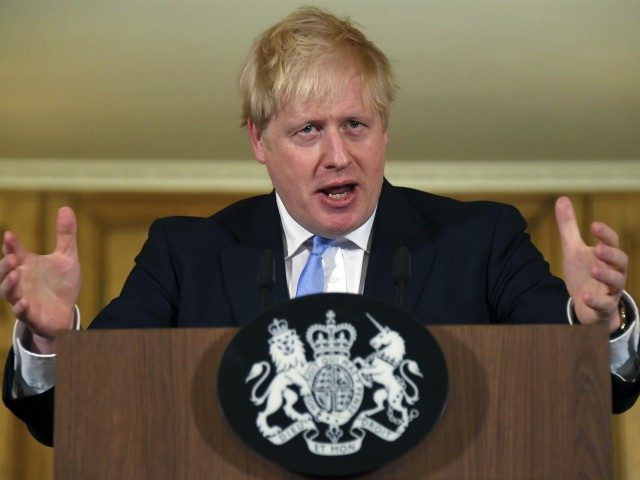Prime Minister Boris Johnson has reportedly changed his mind on allowing Huawei to build 35 per cent of Britain’s 5G networks. The government is also exploring state support for British tech companies to replace the UK’s dependence on Chinese firms.
There has been uproar in the Five Eyes intelligence community since Prime Minister Johnson gave the go-ahead in January for Chinese company Huawei, considered “effectively state-owned”, to construct the future of Britain’s telecommunications networks. The U.S. had warned that Huawei could facilitate Beijing to spy on the UK by building a “backdoor” into British systems.
Amidst pressure from within the Tory government, the Chinese coronavirus coverup, and the continuing suppression of democracy in Hong Kong, the prime minister’s position has reportedly altered, with a senior source in the British administration telling The Times on Sunday that “Boris’s attitude has changed” on the tech firm.
Last week, GCHQ’s National Cyber Security Centre (NCSC) confirmed that it would be reviewing Huawei’s involvement in 5G after the U.S. imposed sanctions on the Chinese company, prohibiting it from using American technology. As a result, Huawei may use, in future, unsafe components that could compromise British data. A second source told The Times yesterday that the intelligence review was a “cover” for getting out of the agreement with the Chinese company.
The newspaper reports that the prime minister is drawing up a three-point strategy to downgrade the firm’s role and will launch state investment in British companies to end the UK’s dependency on the communist state for technology.
Boris Calls for Inquiry into Origin of Coronavirus Following China’s Cover Up https://t.co/bx4XUQ7DuA
— Breitbart London (@BreitbartLondon) May 27, 2020
Bob Seely MP of the Huawei Interest Group — the organisation of 59 Tory lawmakers opposed to Huawei’s involvement in Britain’s 5G — said: “I think this is a very good thing, because in future 5G and our advanced communications are going to be more about software than hardware. Therefore potentially you have lower barriers to entry for new players to bring creative and innovative ideas into market more quickly. That benefits us and them. We need to create a new market.
“If we can, through legal means, as well as financial incentives, develop that domestic open market, it’s good for Britain.”
The government is also looking into measures to stop China taking over British companies — after an attempted boardroom coup of a British based chip designer — and plans to phase out Huawei entirely from British networks by 2023. The UK has also backed a probe into the origins of coronavirus, following China’s coverup in the early weeks of the outbreak.
The newspaper of record reports that Mr Johnson is exploring an international partnership with the Five Eyes (UK, U.S., Australia, New Zealand, Canada) and other modern democracies to develop an alternative to Huawei. The government has reportedly reached out to the Donald Trump administration on the proposed club, which could also include South Korea and India.
The reports come as the UK has begun taking a stricter attitude on the communist superpower over Hong Kong, with a Whitehall source telling The Times that the UK will be “taking a stronger stance and a more public stance regarding China”.
After China proposed a security bill that would be an effective crackdown on Hong Kong, the UK co-signed a letter condemning the move. The British government also said that it would extend visa rights to residents of the former British colony, increasing the path to citizenship, a move that has enraged the communist country which claims such actions would be against international law.
Speaking on The Andrew Marr Show on Sunday, foreign secretary Dominic Raab said that the UK would not “turn a blind eye” to Hong Kongers’ fight for democracy.
UK to Explore Self Sufficiency to End Reliance on China https://t.co/5d6ngOdj0L
— Breitbart London (@BreitbartLondon) May 25, 2020

COMMENTS
Please let us know if you're having issues with commenting.